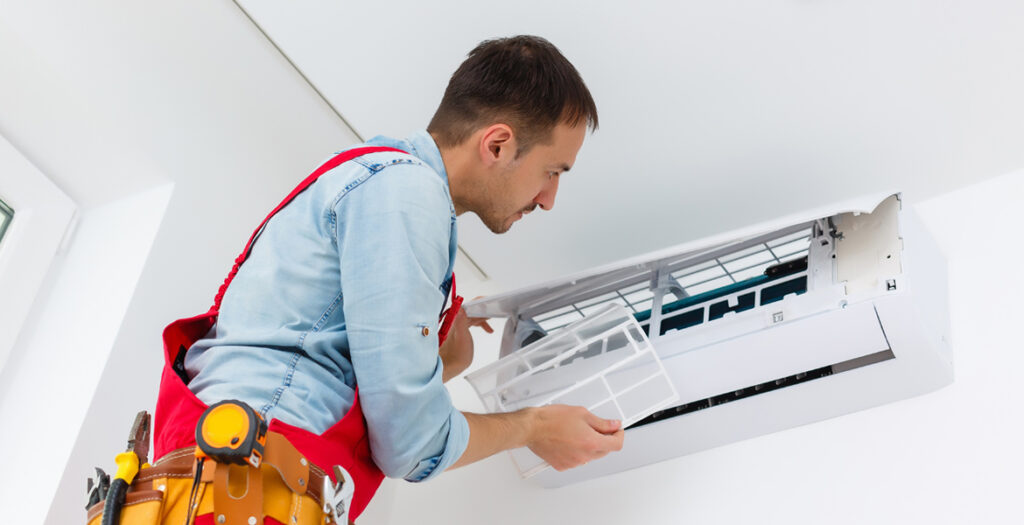In the modern era, the significance of heating, ventilation, and air conditioning, commonly known as HVAC, cannot be overstated, especially in office settings. A well-functioning HVAC system plays a vital role in maintaining adequate indoor environments, which affects work efficiency, well-being, and overall well-being for both employees and customers. Grasping the nuances of HVAC systems is essential for business owners and facility managers who want to ensure optimal performance and energy efficiency.
This detailed guide will cover various aspects of HVAC, from the fundamentals of how these systems work to troubleshooting common issues, and from care tips to the newest innovations in the field. Whether you are looking to upgrade your current system or simply want to learn how to better manage your HVAC for improved air quality and energy savings, this article is designed to provide you with the insight you need to make smart selections. Participate as we explore the important role of HVAC in enhancing the functionality and suitability of business environments.
Grasping HVAC Technology
HVAC stands for heating, ventilation, and air conditioning, a critical system in both spaces. This comprehensive system is designed to provide comfort through climate regulation and quality control of air. By grasping how HVAC functions, building owners can make educated decisions regarding setup, maintenance, and upgrades to ensure effective performance.
Warmth is usually achieved through multiple methods, including heaters, boilers, and heat pumps, which heat the air or move warm water throughout the building. Ventilation is key for maintaining indoor air quality, entailing the swap of indoor air with fresh outdoor air. Air conditioning units, mainly using HVAC systems, help decrease indoor temperatures during hotter months, ensuring a pleasurable environment no matter the external conditions.
As businesses and commercial buildings strive for energy efficiency and environmental responsibility, innovative HVAC technologies are becoming increasingly vital. Smart thermostats and sophisticated filtration systems enhance control over interior environments and air quality, making it simpler for businesses to reduce energy consumption and boost overall comfort. As a consequence, comprehending HVAC systems not only contributes to a healthier indoor environment but also supports targets within commercial settings.
HVAC Maintenance and Efficiency
Regular maintenance of your HVAC system is essential for ensuring it works effectively. Planned inspections and tune-ups can spot potential issues before they become serious, leading to costly repairs or replacements. Keeping filters free of debris and components properly adjusted helps to ensure optimal air circulation and energy efficiency. A properly serviced system not only saves you money on utility costs but also extends the lifespan of your equipment, which is notably important for commercial spaces that depend on reliable temperature regulation.
Efficiency is a critical factor for both domestic and industrial HVAC systems, as maintaining a comfortable environment is crucial for productivity and comfort. When HVAC systems are running at peak efficiency, they use less energy to heat or lower the temperature of a space. air conditioner installation is especially vital in more extensive buildings where energy costs can be significant. Adopting cost-effective solutions, such as upgrading equipment or using smart thermostats, can significantly reduce energy consumption while improving overall performance.
In conclusion, committing to regular HVAC maintenance and looking for ways to boost efficiency can provide significant long-term benefits. For businesses, this means creating a more inviting environment for employees and clients, fostering productivity, and enhancing indoor air quality. By remaining ahead of maintenance and being savvy about options about upgrades, businesses can ensure their HVAC systems remain dependable and budget-friendly for the long haul.
HVAC for Commercial Spaces
HVAC systems play a vital role in commercial spaces, ensuring a inviting and productive environment for employees and customers alike. Proper heating, ventilation, and air conditioning are essential for maintaining a consistent indoor climate, which can greatly affect employee productivity. By regulating temperature and humidity levels, an effective HVAC system creates a comfortable atmosphere that enhances focus and efficiency among employees, making it a vital component of any commercial building.
Additionally, commercial buildings often have more extensive spaces and increased complex ventilation requirements, making the selection and maintenance of HVAC systems critical. Businesses must assess their specific needs based on the size of their space, the number of occupants, and the nature of their operations. Regular maintenance is essential to prevent common problems, such as uneven temperature distribution or inadequate airflow, which can lead to discomfort and lower employee morale. By investing in a reliable and high-performance HVAC system, businesses can improve indoor air quality and reduce energy costs.
Moreover, advancements in HVAC technology have introduced sustainable solutions tailored for commercial applications. Businesses can benefit from smart HVAC systems that adapt to occupancy patterns and optimize energy use, resulting in considerable cost savings. Furthermore, innovations such as geothermal heating and cooling or solar-powered HVAC systems can provide environmentally-friendly options that contribute to a company's environmental goals. Overall, prioritizing HVAC in commercial spaces not only enhances comfort and productivity but also aligns with the growing demand for energy efficiency and sustainability.

